News
-
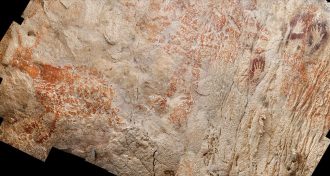 Archaeology
ArchaeologyLike Europe, Borneo hosted Stone Age cave artists
Rock art may have spread from Borneo across Southeast Asia starting 40,000 years ago or more.
By Bruce Bower -
 Neuroscience
NeuroscienceLoneliness is bad for brains
Social isolation shrinks nerve cells in the brains of mice, a new study shows.
-
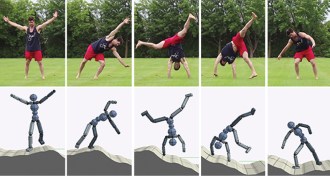 Computing
ComputingVirtual avatars learned cartwheels and other stunts from videos of people
A new computer system that lets animated characters learn acrobatic skills from videos could be a cheaper alternative to traditional motion capture.
-
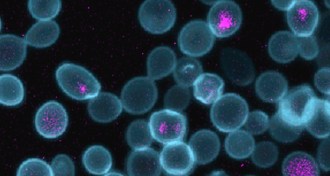 Life
LifeA mash-up of yeast and E. coli shows how mitochondria might have evolved
An engineered partnership between yeast and E. coli suggests one way mitochondria may have evolved.
-
 Physics
PhysicsA new measurement bolsters the case for a (slightly) smaller proton
The PRad physics experiment has come up with a result favoring a punier proton.
-
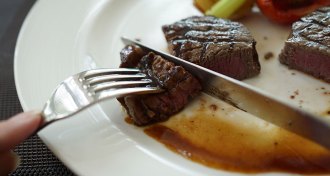 Life
LifeEating less protein may help curb gut bacteria’s growth
A new study in mice and 30 mammal species hints at what controls the types and amounts of gut microbes, which can contribute to health and disease.
-
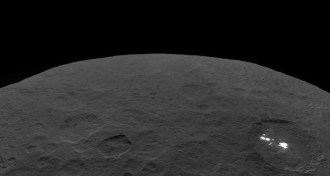 Planetary Science
Planetary ScienceDawn, the first spacecraft to orbit 2 alien worlds, has gone silent
The Dawn probe, which hopped between two objects in the asteroid belt during its seven-year mission, ran out of fuel and stopped calling home.
-
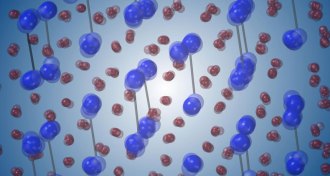 Physics
PhysicsVanadium dioxide’s weird phase transition just got weirder
When shifting from one crystalline structure to another, the atoms inside vanadium dioxide bumble around a lot more than expected.
-
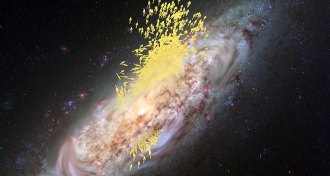 Astronomy
AstronomyThe Milky Way feasted on a smaller galaxy 10 billion years ago
The Milky Way swallowed another galaxy billions of years ago, and the leftover stars are still roaming the sky.
-
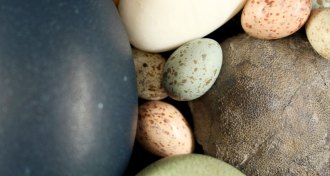 Paleontology
PaleontologyEggs evolved color and speckles only once — during the age of dinosaurs
Birds’ colorful eggs were inherited from their nonavian dinosaur ancestors.
-
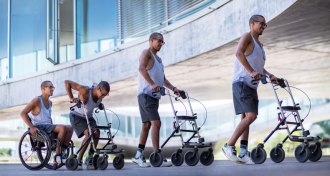 Neuroscience
NeuroscienceStimulating the spinal cord helps 3 more paralyzed people walk
There’s more evidence that with targeted spinal cord stimulation, paralyzed people can move voluntarily — and even walk.
-
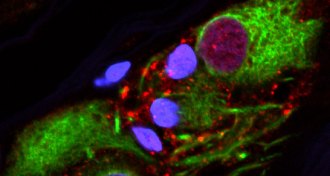 Health & Medicine
Health & MedicineThe appendix is implicated in Parkinson’s disease
Removal of the appendix reduced the risk of developing Parkinson’s disease, an analysis of nearly 1.7 million health records in Sweden suggests.